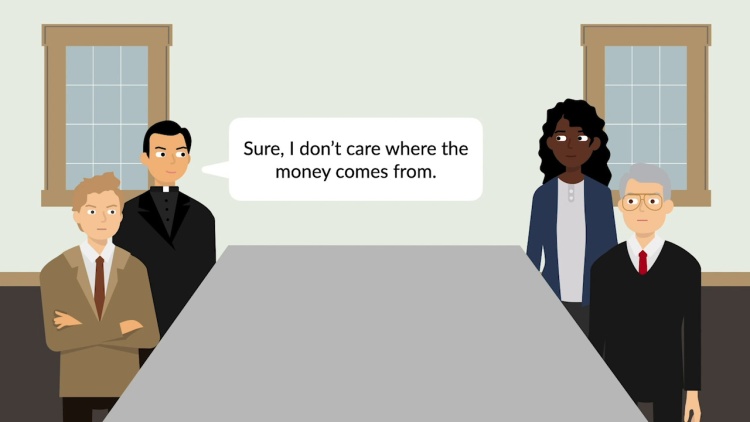United States v. Knox
United States Court of Appeals for the Fifth Circuit
112 F.3d 802 (1997)

- Written by Rich Walter, JD
Facts
On several occasions, potential investors in Reverend David Brace's (co-defendant) financially distressed church asked Brace and his financial advisor Shannon Knox (co-defendant) if they were willing to launder investment money derived from illegal drug sales. Brace had no criminal record and no prior experience with money laundering, but he and Knox repeatedly assured the investors that they were willing to launder the drug money. Thereafter, Brace and Knox started receiving large installment payments from the investors. The investors were actually undercover federal agents who arrested Brace and Knox when they accepted a fourth payment. The United States government (plaintiff) prosecuted the pair on four counts of money laundering and related offenses. Trial evidence included an agent's testimony that, although it was inefficient to use a church to funnel laundered money, and no real money launderer had ever done so, no one would suspect a church of money laundering and therefore Brace was an ideal target for a sting operation. The jury convicted Brace and Knox on four counts. On appeal to the United States Court of Appeals for the Fifth Circuit, Brace contended that he was entrapped as a matter of law.
Rule of Law
Issue
Holding and Reasoning (DeMoss, J.)
What to do next…
Here's why 911,000 law students have relied on our case briefs:
- Written by law professors and practitioners, not other law students. 47,100 briefs, keyed to 997 casebooks. Top-notch customer support.
- The right amount of information, includes the facts, issues, rule of law, holding and reasoning, and any concurrences and dissents.
- Access in your classes, works on your mobile and tablet. Massive library of related video lessons and high quality multiple-choice questions.
- Easy to use, uniform format for every case brief. Written in plain English, not in legalese. Our briefs summarize and simplify; they don’t just repeat the court’s language.





